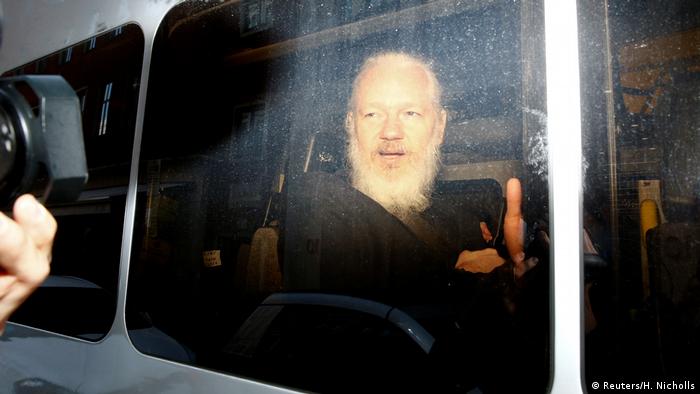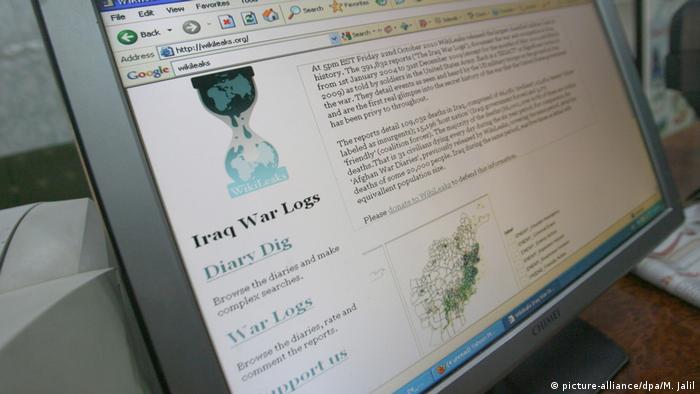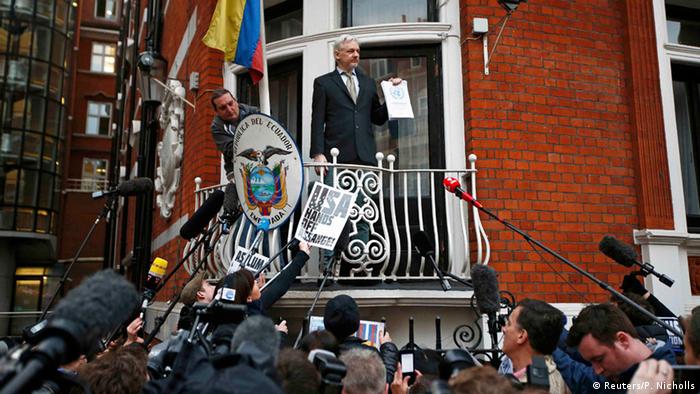The United States avoided a direct attack on the freedom of the press by WikiLeaks founder Assange “‘d just accuse” of hacking. Nevertheless, the prosecution could have a chilling effect for journalism.

Julian Assange after his arrest on Wednesday in a police vehicle
Up to the day of the arrest, kept under lock and key indictment of the United States against WikiLeaks founder, Julian Assange, is limited in scope. Assange is only accused of the conspiracy. The allegation is that he tried with accomplices, to get access to a government computer that contained secret documents. The charges – here, now – not accused Assange but to have the secret information published.
The US had charged instead a prosecution for espionage, this would probably have been seen as a direct attack on the freedom of the press enshrined in the first amendment of the U.S. Constitution.
The Constitution protects the publication of
“This is different, the illegal procurement of information by the Publishing of this information,” says Frederick Schauer, Professor of law at the University of Virginia. In contrast to many other countries it is not allowed in the USA only, but even by the Constitution, protected to publish illegally obtained information, as Schauer explains. Only the pure act, to procure this information, for example through theft, or Hacking, is prohibited.

In 2010, WikiLeaks published the so-called Iraq war Logs – hundreds of thousands of secret documents about the war in Iraq
In the indictment, the U.S. government claims that Assange had helped in the year 2010, the Whistleblower Chelsea Manning, to crack a password that is stored on computers of the Ministry of defence. These PCs were connected to a government network that will be used for secret files and communications. Manning had through your former activities on the computer.
The paper is not clear, whether it’s Assange, and Manning was able to decrypt the password. Assange should be convicted, he faces up to five years in prison.
The safe way
“I think it was a strategic decision of the government, not in court for anything to proceed, this has to do with the publication of,” says Schauer. “From the perspective of the government, this seems to be the legally safer way to go.”
Although the difference between the illegal procurement of information and its subsequent publication is constitutionally clearly, there are experts to Express, in the face of the indictment concerns about the freedom of the press. One of them is Jameel Jaffer, Director of the Knight First Amendment institutions (in English: “the Institute of the knights of the first amendment”) is at Columbia University in New York.

He spent seven years, Julian Assange in the Ecuadorian Embassy in London – here at a speech in 2016
Jaffer welcomed the fact that the core of the charge relates to the alleged Hacking of a government computer, and not to Publish secret information. At the same time, he criticised that the prosecution has not dealt with a series of activities , which “are in conformity with the law, but to the heart of the freedom of the press, such as the contact building and care, as well as secure communication with secret sources”.
Legitimate Activities
The charge, under the “manner and means of the conspiracy” that Assange was with his “co-conspirators” over an online chat in contact, and that the secret files were shared via a Cloud service. “It seems pretty clear that the goal of the prosecution is to spot these absolutely legitimate journalistic activities, and by being brought with the alleged, unlawful to Hack the government database in connection,” says Jaffer. The question is irrelevant, whether you think Assange is a Journalist or not is supplements like Jaffer on Twitter.
It is possible that the U.S. Department of justice, aspiring to a later date further charges against Assange, Jaffer. For this reason, he finds it important to observe the dealings of the Ministry with the Assange case very carefully, because the current government under President Donald Trump is a media generally hostile. This concerns, in particular, the journalism that deals with national security, but not only. “It may well happen that the prosecution of the government will have a chilling effect on journalism as a whole”.
Watch the Video 28:36
Whistleblower – Alone against the System
Facebook Twitter google+ send Tumblr VZ Xing Newsvine Digg
Permalink https://p.dw.com/p/1HatW